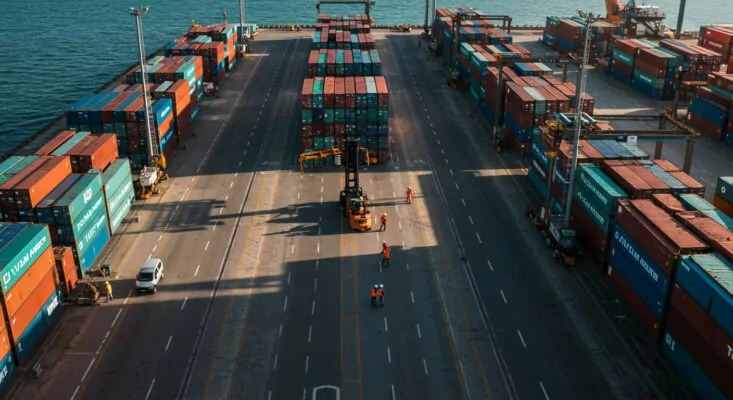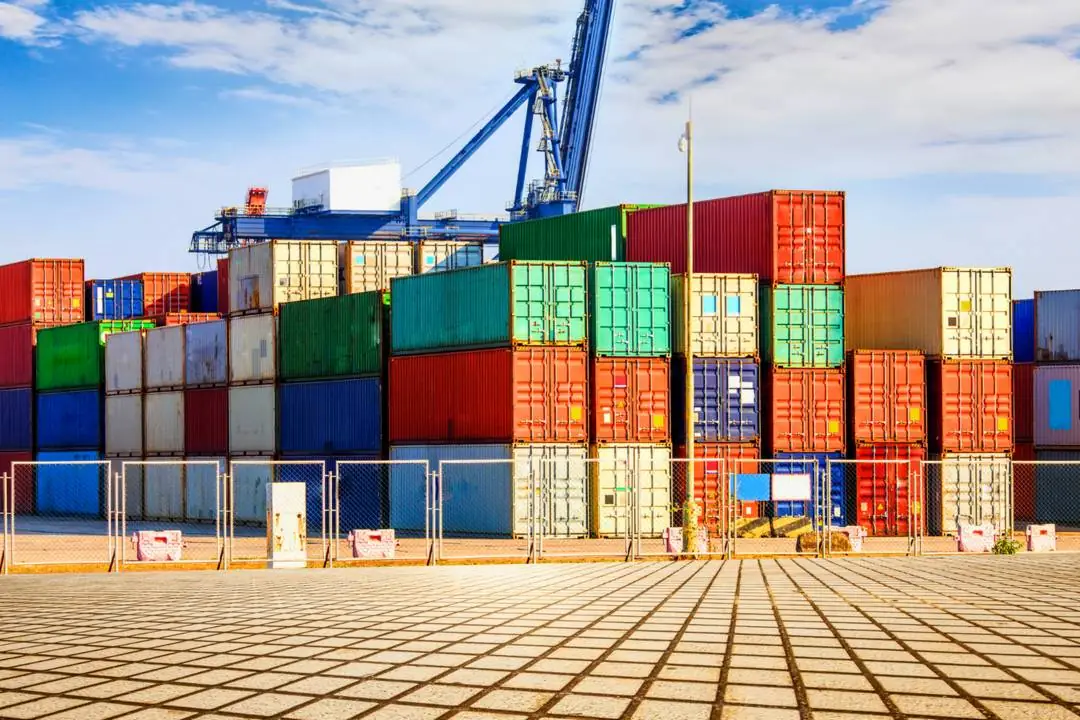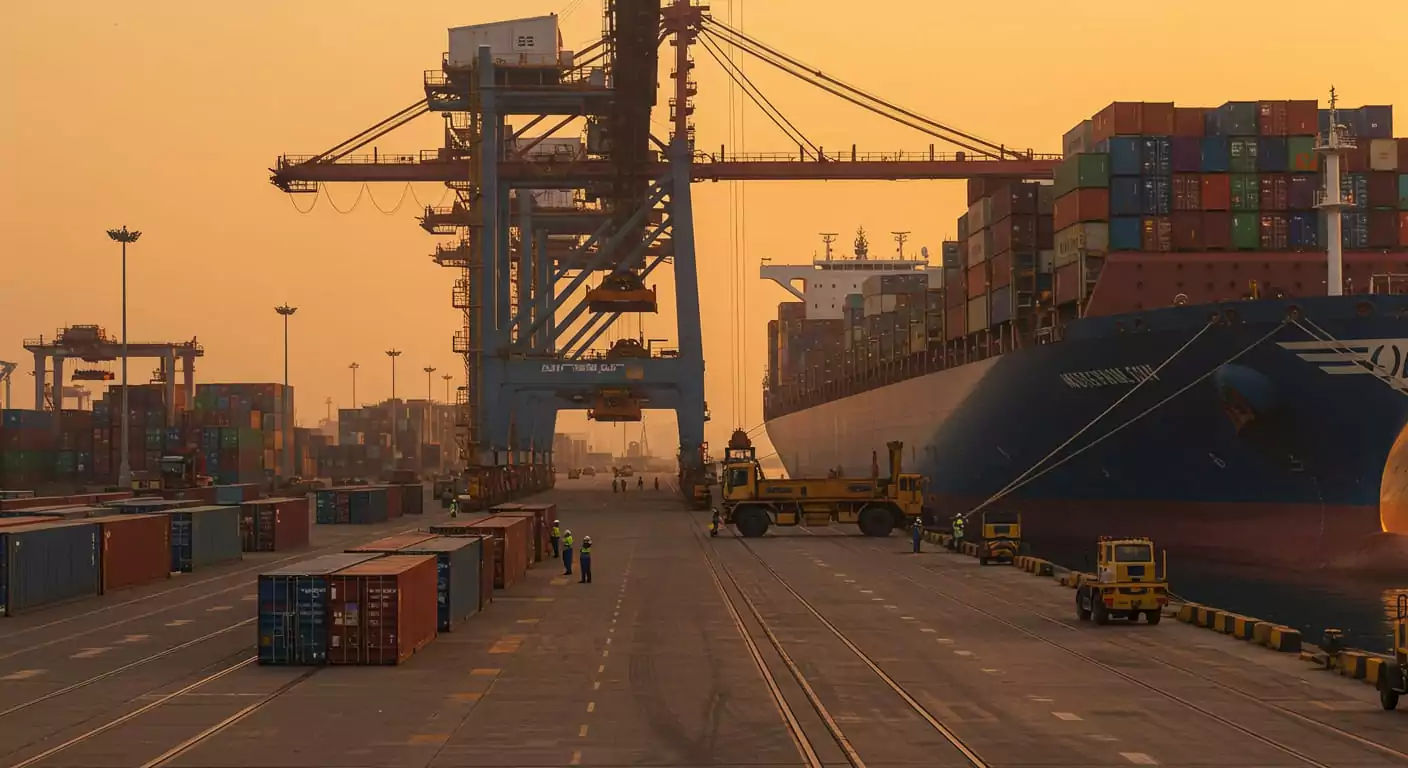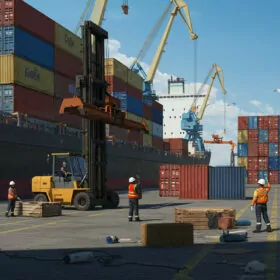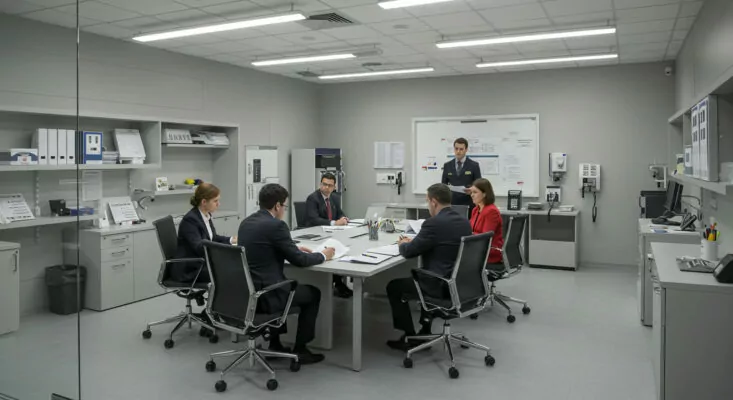O foreign trade Foreign trade is a field full of opportunities for companies wishing to expand their reach, improve their competitiveness and diversify their markets. Importing and exporting products can mean access to better technologies, expanding the customer base and even strategic tax gains.
However, operating in this segment also requires technical preparation and extra attention to fiscal, tax and customs bureaucracy.
Every international shipment involves a complex chain of legal obligations, tax documents, customs regulations and exchange rules. And it is precisely in this scenario that it becomes indispensable to have a accounting for imports and exports specialized.
Companies involved in foreign trade - whether they are importers, exporters or trading companies - face challenges that go far beyond recording accounting transactions.
They need a an experienced accounting partner who thoroughly understands the requirements of the sector and acts in a consultative manner to ensure compliance and tax efficiency.
In this article, you will understand why CLM Controller is the ideal choice for international businesses looking for accounting precision, legal certainty and strategic guidance.
Based in São Paulo, Brazil's logistics and commercial center, CLM offers complete and customized solutions in accounting for foreign trade, serving companies of all sizes with a focus on performance and peace of mind.
Listen to the podcast of this article andntend how specialized accounting can help importers and exporters avoid risks and improve management in foreign trade.
RADAR and Siscomex: the gateway to operating in foreign trade
Before starting any import or export operation, the company needs to be duly qualified with the Receita Federal.
In practice, this is done through the system RADAR (Registration and Tracking of Customs Actions)which releases access to Siscomex (Integrated Foreign Trade System) - The platform through which all transactions involving the entry and exit of goods from the country are recorded.
The RADAR qualification process is a technical and financial filter, which requires the company to proof of its economic capacity, fiscal regularity and structure compatible with the type of operation intended.
There are three main types of license:
- Express - for micro and small companies with an annual limit of up to US$ 50 thousand in operations
- Limited - for companies handling up to US$ 150 thousand per semester
- Unlimited - intended for companies that handle larger amounts and require more careful analysis
Regardless of the modality, the Internal Revenue Service requires a series of accounting and tax documents that prove the viability of the operation, such as:
- Updated accounting statements (balance sheet and income statement)
- Corporate Income Tax Return (IRPJ)
- Debt clearance certificates
- Proof of paid-in capital and source of funds
- Corporate composition and organizational structure
In this process, the work of an accountant experienced in foreign trade is essential. decisive in guaranteeing the approval of the license without risk of rejection.
Errors in the presentation of documents, inconsistencies in balance sheets or the absence of key information can lead to the application being denied, directly impacting the company's plans.
In CLM ControllerWe closely monitor the entire process of applying for, changing or reviewing the RADAR.
Our experts in accounting for importers and exporters prepare the documents with technical rigor and interface with the IRS portal, ensuring that your company is able to operate legally in the international market.
Integrated customs documentation and accounting records
Once enabled, the company begins to deal with a new layer of requirements: foreign trade documents and their impact on accounting.
Every import or export operation involves a robust document chain, from negotiations with suppliers or buyers abroad to customs clearance.
This documentation needs to be perfectly aligned with the company's accounting records, guaranteeing traceability, transparency and compliance with legal obligations.
The most important documents include:
- Commercial invoice
- Bill of Lading (BL) or Air Waybill (AWB)
- DI (Import Declaration) e LI (Import License)
- DUE (Single Export Declaration)
- Proof of international payment
- Freight, insurance and storage receipts
- A/P and A/R invoices
These documents serve as the basis for bookkeeping and need to be analyzed by professionals who understand their nature, purpose and fiscal impact.
In practice, the accounts must faithfully reflect the acquisition costs, including the amounts paid abroad, taxes levied, logistical expenses and exchange rate variations. It is also necessary to correctly identify recoverable taxes (such as ICMS, PIS and COFINS on imports), separating them from the actual cost of the goods.
At the same time, accounting needs to be synchronized with the tax records required by the Brazilian authorities, such as:
- SPED Fiscal and SPED Accounting
- Entry of Invoices based on the DI
- Siscoserv records (where applicable)
- Information for the Central Bank (RID and ROF)
In CLM ControllerAll these documents are handled in an integrated manner with the accounting system.
We guarantee that no important information is left out of the releases and that the company's reports are ready for audits, inspections and customs compliance.
In addition, our team advises clients on document organization and storageThis reduces risks in the event of inspection and guarantees complete traceability of international operations.
High tax burden and strategic planning in international operations
One of the main reasons why companies involved in foreign trade look for a specialized accounting is the tax complexity.
Importing or exporting in Brazil involves a combination of federal, state and municipal taxes, as well as rules that vary according to the type of goods, country of origin or destination, type of operation and international agreements.
The following are the main taxes levied on transactions involving import:
- Import Tax (II) - federal tax, with variable rates depending on the tax classification of the goods
- IPI - Tax on Industrialized Products - also federal, is levied on the entry of the imported product into national territory
- PIS and COFINS-Imports - federal contributions levied on the customs value of the goods
- ICMS-Import - state tax, the rate and calculation of which vary according to the state of the importer
- IOF - is levied on foreign exchange transactions
- Customs duties and taxes from the Federal Revenue Service
In exportIn turn, the greatest advantage lies in the most taxes are not levied on the exit of the goods. However, this requires care in the calculation of tax credits and correct bookkeeping, to avoid the loss of benefits and problems with the tax authorities.
In addition to the regular tax burden, there are also the special forms of taxation and tax incentiveswhich can generate significant cost reductions - provided they are correctly applied. The main special regimes used in foreign trade include:
Main tax and customs regimes:
- Drawback - allows the suspension, exemption or refund of taxes on imported inputs for use in exported products
- Ex-Tariff - temporarily reduces the II and/or IPI for machinery and equipment with no national similarity
- Bonded Warehouse - allows the storage of imported goods in a bonded warehouse without the immediate payment of taxes
- Temporary admission - ideal for goods entering the country with a re-export deadline
- Blue Line - express customs clearance regime, applicable to certified companies with a high degree of compliance
Each of these regimes requires strict controlIn addition to the above, it is essential to have consistent accounting and tax records and, often, prior approval from bodies such as the Federal Revenue Service, SECEX and MAPA. A small error in application can lead to fines, disallowances or exclusion from the benefit.
In CLM ControllerOur team analyzes the profile of the company and the operation to identify the most advantageous and applicable tax regime. We carry out simulations, check the tax history, the NCM classification of the products and guide every step of the process - from the application to the control of the application of the regime.

Complete guide to
Strategic Accounting

Tax planning with a direct impact on profit
Based on all these elements, we built a tax planning tailor-made for foreign tradeconsidering:
- Company location and state tax benefits
- Tax regimes (Real Profit, Presumed Profit or Simples Nacional)
- Potential recovery of tax credits
- Possibility of load reduction with special schemes
- Feasibility analysis for direct import, on account or to order
- Tax treatment for related services (freight, insurance, storage, logistics)
This planning not only reduces the tax burden, but also improves cash flowThis avoids contingencies and allows for more aggressive and secure commercial decisions.
International costs and pricing on an accurate accounting basis
Another critical point for companies involved in importing or exporting is the price formation.
More than just converting the value of the commercial invoice, you have to consider all the costs that make up the so-called "effective import cost" or "international logistics costs".
These costs may include:
- FOB value of goods
- International freight (sea, air or land)
- International insurance
- Customs clearance costs
- Storage in primary zone
- Brokerage, internal transportation and terminal fees
- Exchange rate variations and financial costs
- Taxes paid on imports (II, IPI, PIS, COFINS, ICMS)
It is the role of accounting to correctly calculate this total cost so that the company can:
- Set competitive resale or export prices
- Evaluating real profit margins
- Correctly estimating the Cost of Goods Sold (COGS)
- Record recoverable tax credits separately
- Prevent credits from being lost or incorrectly posted to cost
In practice, poorly structured accounting can overestimating the cost of the product (by including recoverable taxes as a cost) or underestimating logistics expenses, compromising the margin and making it difficult to price correctly.
Practical example:
A company that imports high-value electronic equipment, with an II tax rate of 14%, can benefit from:
- Ex-tariffreducing the rate to 0%
- Recovery of ICMS paid on import
- Highlight the values of PIS/COFINS recoverable in bookkeeping
- Treat the international freight to avoid undue inclusion in the CMV
With the support of CLM Controllerall these elements are accurately recorded, classified and analyzedThis allows international pricing to reflect the reality of costs and ensure competitiveness.
Find out in the article how strategic accounting makes a difference in foreign trade - and delve deeper into the topic with CLM Controller's special video.
Standards, compliance and accessory obligations in foreign trade
In addition to tax management and correct pricing, companies involved in foreign trade need to comply with a number of accessory obligations and specific legal requirementswhich are not part of the routine of companies operating exclusively in the domestic market.
Ignoring these obligations can result in high fines, retention of goods at customs, suspension of tax benefits and even blocking access to Siscomex.
At CLM Controller, we have in-depth knowledge of the rules governing international operations and we offer complete accounting and tax compliance supportkeeping our customers compliant:
Tax and Accounting SPED with a focus on foreign trade
O Public Digital Bookkeeping System (SPED) requires information related to imports and exports to be recorded accurately, in specific fields and blocks.
In the case of imports, it is compulsory:
- Inform the Import Declaration (DI) linked to the invoice
- Detail the amounts of taxes paid on clearance
- Evidence of the origin of the goods, the tax classification (NCM) and the nature of the operation
As for exports, the accounts must record this:
- A Single Export Declaration (DUE)
- The nature of the revenue (export revenue, triangular transaction, etc.)
- Shipment data, means of transport, exchange and international contracts
Our team uses integrated and up-to-date management systems to ensure that all entries are in line with SPED requirements and ready for any audit or inspection.
Siscoserv (when in force) and Central Bank
Companies that export or import services, intangibles or technologies are (or were) also subject to the SiscoservThis is a system that requires transactions with foreign countries to be recorded, even when they don't involve physical products.
Although the system is currently suspended, its possible reactivation or replacement requires attention. CLM keeps a close eye on regulatory developments to ensure that our clients are always prepared.
In addition, transactions with foreign countries involving the inflow or outflow of funds - such as international payments, investments or intercompany loans - must be declared to Central Bankthrough systems such as:
- ROF (Register of Financial Operations)
- RDE-IED (Foreign Direct Investment)
- RDE-ROF (Credit and financing operations with foreign countries)
These registrations have legal deadlines and require detailed accounting information. Our team provides technical support in generating and sending these declarationsavoiding fines for omission or delay.
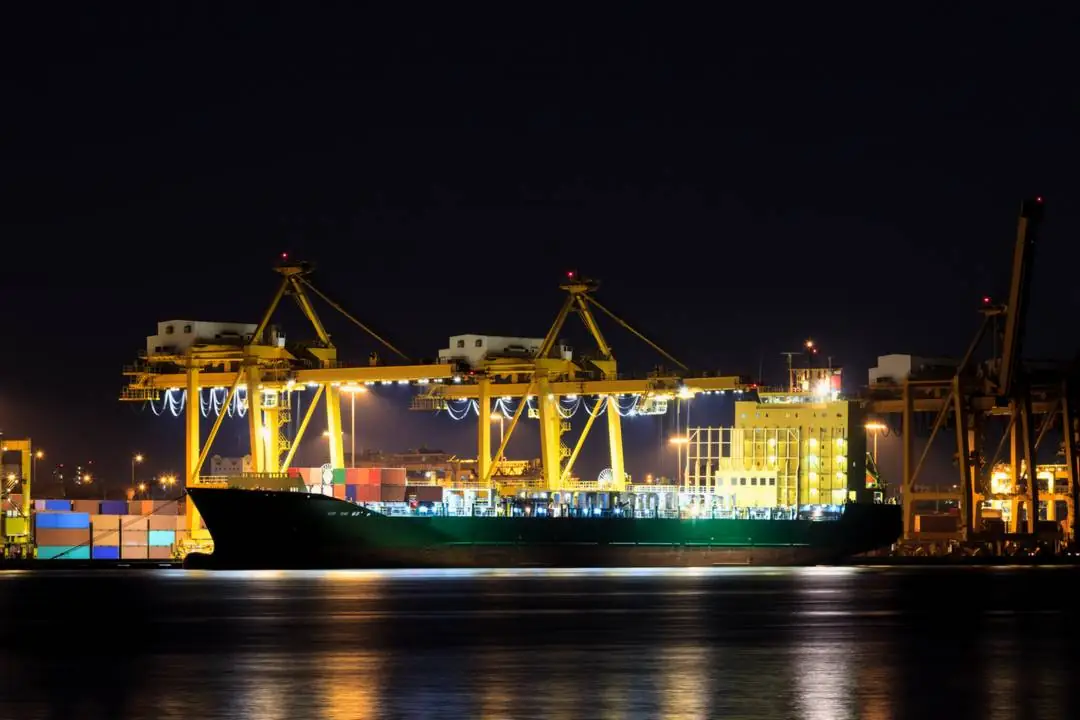
Foreign Trade
Content with free materials!
Strategic accounting consultancy in international trade
More than carrying out tax routines and sending accessory obligations, an accounting firm specializing in foreign trade must act in a way that advisoryThis helps the company make strategic decisions that directly impact its profitability and legal certainty.
A CLM Controller offers accounting consultancy for importers, exporters and trading companieswith a focus on:
- Analysis of the best operating modeldirect import, on behalf of third parties, or to order
- Tax simulations for different NCMs and tax regimes
- Feasibility assessment of special schemessuch as drawback and ex-tariff
- International tax planningwith a focus on legal tax avoidance
- Corporate and financial structure modelingespecially for groups operating in Brazil and abroad
Practical example
A São Paulo company that imports electronic components for resale in Brazil can:
- Use the customs warehouseby postponing the payment of taxes until the goods are shipped out
- Correctly classify imported items with technical support from the accounting department in order to avoid undue payment of II or IPI
- Create a import to orderoperating with logistical and financial partners to reduce risks
- Do monthly calculation of tax creditsmaintaining the ICMS balance, PIS and COFINS always up-to-date for use in cash flow
These decisions have a direct impact on the company's operating results, consumer prices and reinvestment capacity.
Control of international cash flow and exchange rate risk
Companies that operate with foreign currencies need an accounting system prepared for dealing with exchange rate variations, hedge contracts and cash flow control in more than one currency.
In foreign trade, inflows and outflows in dollars, euros or other currencies need to be converted correctly in the accounts, applying the rules of CPC 02 (effects of exchange rate variations) and complying with the requirements of the Central Bank and the Federal Revenue Service.
CLM offers support in:
- Multi-currency cash flow control
- Accounting for exchange rate assets and liabilities
- Monitoring foreign exchange contracts and their accounting reconciliation
- Planning for risk mitigation with currency hedge contracts
- Determination of the fiscal and managerial impacts of exchange rate variations on DREs
Efficient management of exchange rate risk allows for greater predictability in financial planning, greater protection of profit margins and better negotiation with international suppliers or clients.
Having specialized accounting means investing in security, efficiency and growth
Operating a company in foreign trade requires much more than a basic understanding of tax obligations.
Importing and exporting regularly imposes a dynamic reality, where legislation changes frequentlyThe tax risks are high, international competition is fierce and accounting errors can be costly - whether through undue taxation, legal penalties or loss of competitiveness.
In this scenario, having a accounting for imports and exports is essential for the company's success.
More than "complying with the tax authorities", the right accounting firm acts as a strategic partnercompliance, advising on operational decisions, and supporting management in the tax planning and financial.
At CLM Controller, we offer exactly this level of support. We work with:
- In-depth technical knowledge tax, accounting and customs rules
- Mastery of specific accessory obligations for international trade
- Consulting tax planning and special regimes
- Support for international logistics pricing and costing
- Advice on exchange controls and international financial risk
- Consultative and personalized service, focused on results
Be your company a parts importer, a food exporter, a trading company or an international service provider, we have the structure, the team and the experience to ensure that your operation is compliant, taking advantage of all the legal benefits available.
CLM Controller: specialized accounting for those who work across borders
Located in São Paulo, one of the main logistics and commercial hubs in Latin America, the CLM Controller Accounting has been serving import and export companies for over 15 years. We are recognized for our foreign trade expertiseThis is combined with the delivery of a consultative, close and results-focused service.
We are proud to offer it:
- Personalized service by international trade specialists
- Accounting solutions adapted to the reality of each business
- Analysis and monitoring of financial and tax indicators
- Support for inspections, audits and RADAR qualification processes
- Access to cutting-edge technology for integrated tax and accounting management
By choosing CLM Controller, you have the peace of mind of working with an office that masters day-to-day foreign trade, understands their pains, anticipates risks and helps build solutions - safely, compliantly and efficiently.
Don't let the complexity of foreign trade get in the way of your business.
Count on an accountancy firm that specializes in import and export to navigate safely and profitably - Talk to CLM Controller today!

Upgrade your finances:
Talk to us!
Companies involved in foreign trade have to deal with complex tax and customs regulations. Specialized accounting is essential to ensure compliance with legal obligations, avoid assessments and optimize the tax burden of these operations.
Among the most common risks are errors in the tax classification of goods, incorrect calculation of taxes (such as II, IPI, PIS and Cofins-Import), failures to fill in declarations such as DUIMP or Siscoserv and lack of proper tax planning.
CLM Controller offers specialized technical support in accounting and taxes for foreign trade. This includes tax planning, correct tax calculation, guidance on tax classification, compliance with ancillary obligations and compliance with current legislation.
Accounting for companies that operate with imports and exports requires specific knowledge of customs regimes, international tax legislation, trade agreements, as well as mastery of systems such as Siscomex and DUIMP. It is a more technical service, focused on strategic tax risk management.
Importers, exporters, distributors, industries that use foreign inputs, trading companies and even e-commerces that sell outside Brazil benefit from accounting and tax support focused on foreign trade.


